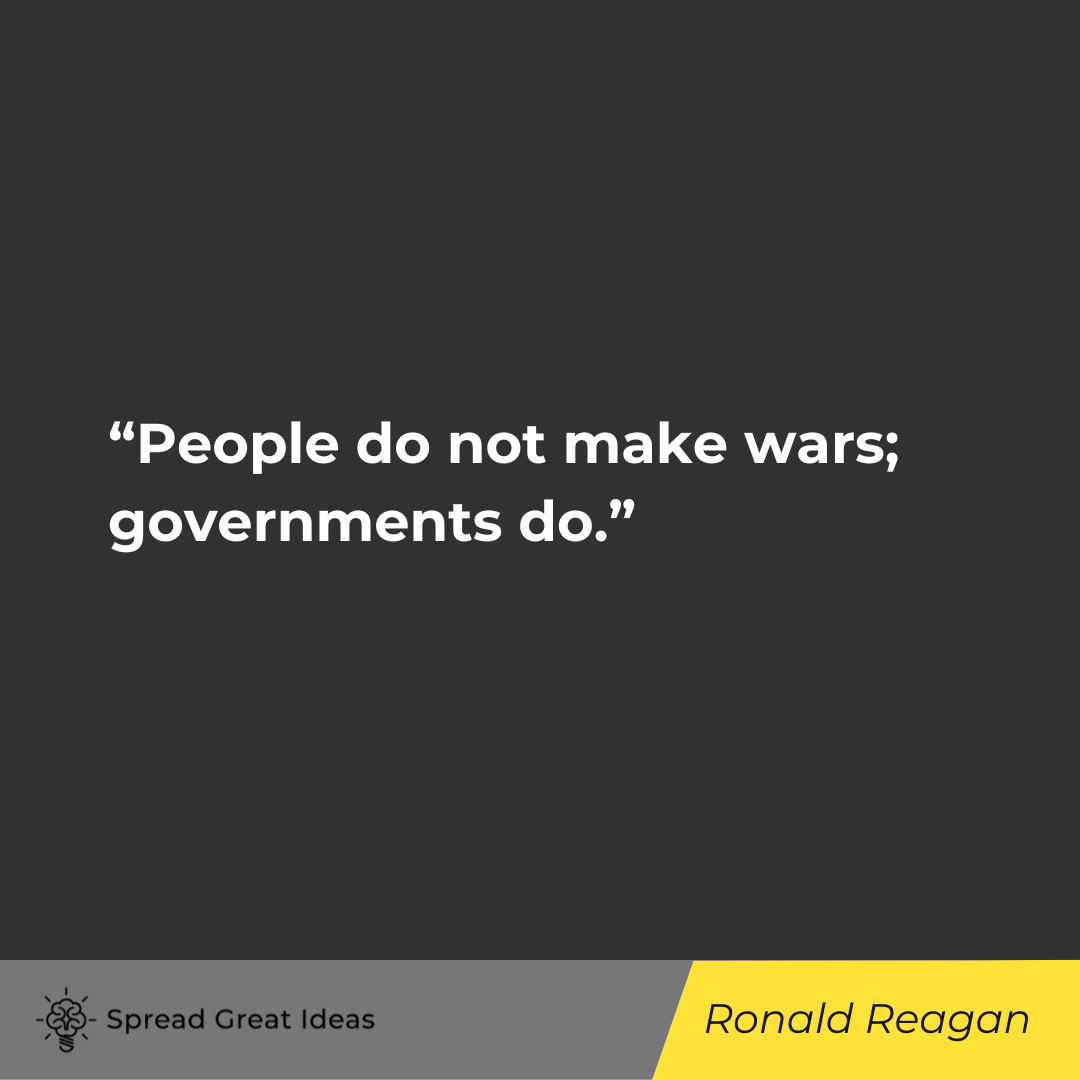Table of Contents
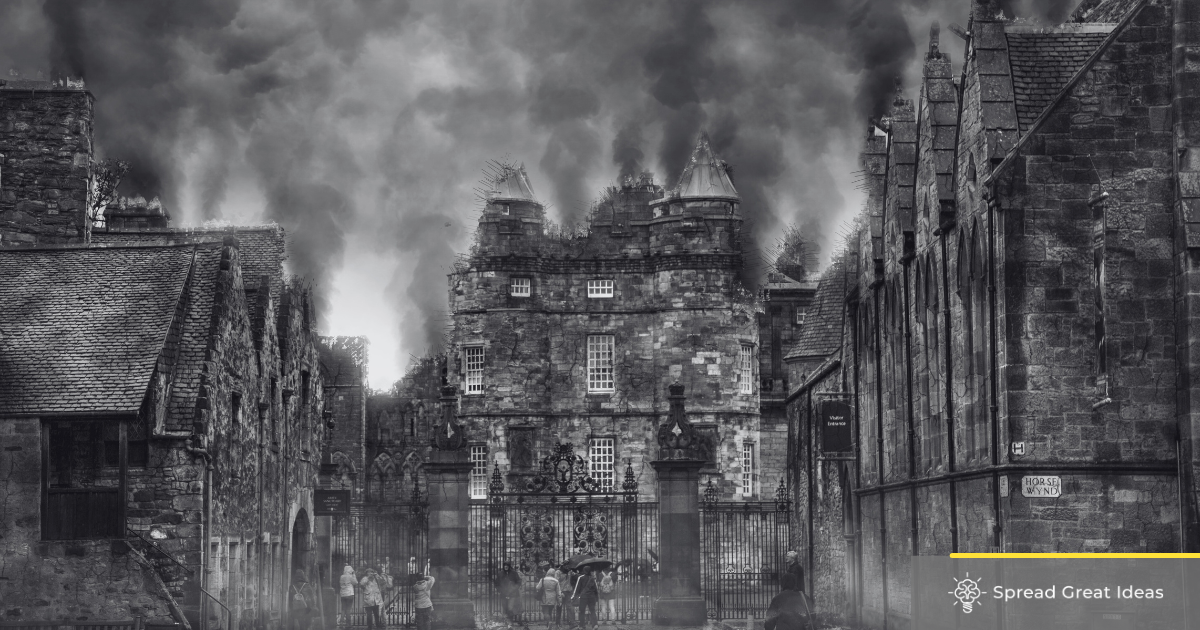
“War is not the answer.” We’ve seen this message stuck to the bumper of many a Volkswagen Westfalia. But what this little aphorism begs is a question: what was the question?
War, by its very nature, brings devastation, suffering, and loss. It tears apart families, shatters communities, and leaves scars that linger for generations. The impact of war is undeniably negative, leaving behind a trail of destruction and human tragedy. It is a reflection of humanity’s darkest impulses and the failure to resolve conflicts through peaceful means.
Yet, as we explore the complex tapestry of war, we find ourselves confronted with a paradox. There are moments when war becomes a haunting necessity, a grim answer to a question no one wishes to ask. In the face of invasion, oppression, and imminent threat, the alternative to waging war is often a grim choice between subjugation, enslavement, or annihilation.
History provides us with vivid examples where nations and individuals have been thrust into the crucible of war, compelled to defend their very existence. Consider ancient Greece, under the shadow of the Achaemenid Empire’s invasion. For the Greeks, war became an indispensable response, a desperate fight for freedom and autonomy. To submit was to accept a fate worse than death—enslavement and the loss of their cherished way of life.
Similarly, imagine the Japanese people during the invasion of the Yuan dynasty. Faced with a merciless aggressor, their survival hinged on resisting with every fiber of their being. In such dire circumstances, diplomacy alone could not appease the forces that sought their destruction. War, as horrifying as it may be, became the only viable solution to protect their land, culture, and future.
It is important to emphasize that advocating for war as a means to sell weapons or pursue selfish gains is abhorrent. We do not seek to glorify conflict, redraw borders, or exploit the suffering of others. Instead, we acknowledge the painful reality that there are moments when individuals and nations find themselves on the precipice, with the stark choice of defending their very existence or succumbing to obliteration.
When faced with adversaries who have already made the decision to unleash violence upon you, the prospect of diplomacy and peaceful resolutions can seem like distant mirages. In these circumstances, the imperative for self-defense and preservation takes hold. The harrowing truth is that sometimes, to protect lives and secure a future, the only viable path is to confront and neutralize the threat before it engulfs you.
Nevertheless, as we explore the nuances of war, we must remain vigilant in our pursuit of peace. It is our duty as rational beings to exhaust every possible avenue for resolution before resorting to the horrors of armed conflict. Diplomacy, negotiation, and dialogue should always be the primary tools in our arsenal, striving to prevent conflicts before they arise and finding pathways to reconciliation.
As we delve into this curated collection of war quotes, we invite you to contemplate the multifaceted nature of human conflict. It is a journey that explores the depths of our capacity for destruction and yet reaffirms our unwavering commitment to peace. These quotes serve as poignant reminders of the cost of war, the complexities of its existence, and the resolute determination of individuals to endure and overcome its devastating consequences.
Through these profound insights, we seek to foster a deeper understanding of the consequences of war, the importance of peaceful resolutions, and the imperative to strive for a world where the question that war answers remains a question we never have to ask.
Quotes About War and the Detrimental Effects of Long-term Warfare
George Orwell
“War is a way of shattering to pieces, or pouring into the stratosphere, or sinking in the depths of the sea, materials which might otherwise be used to make the masses too comfortable, and hence, in the long run, too intelligent.”
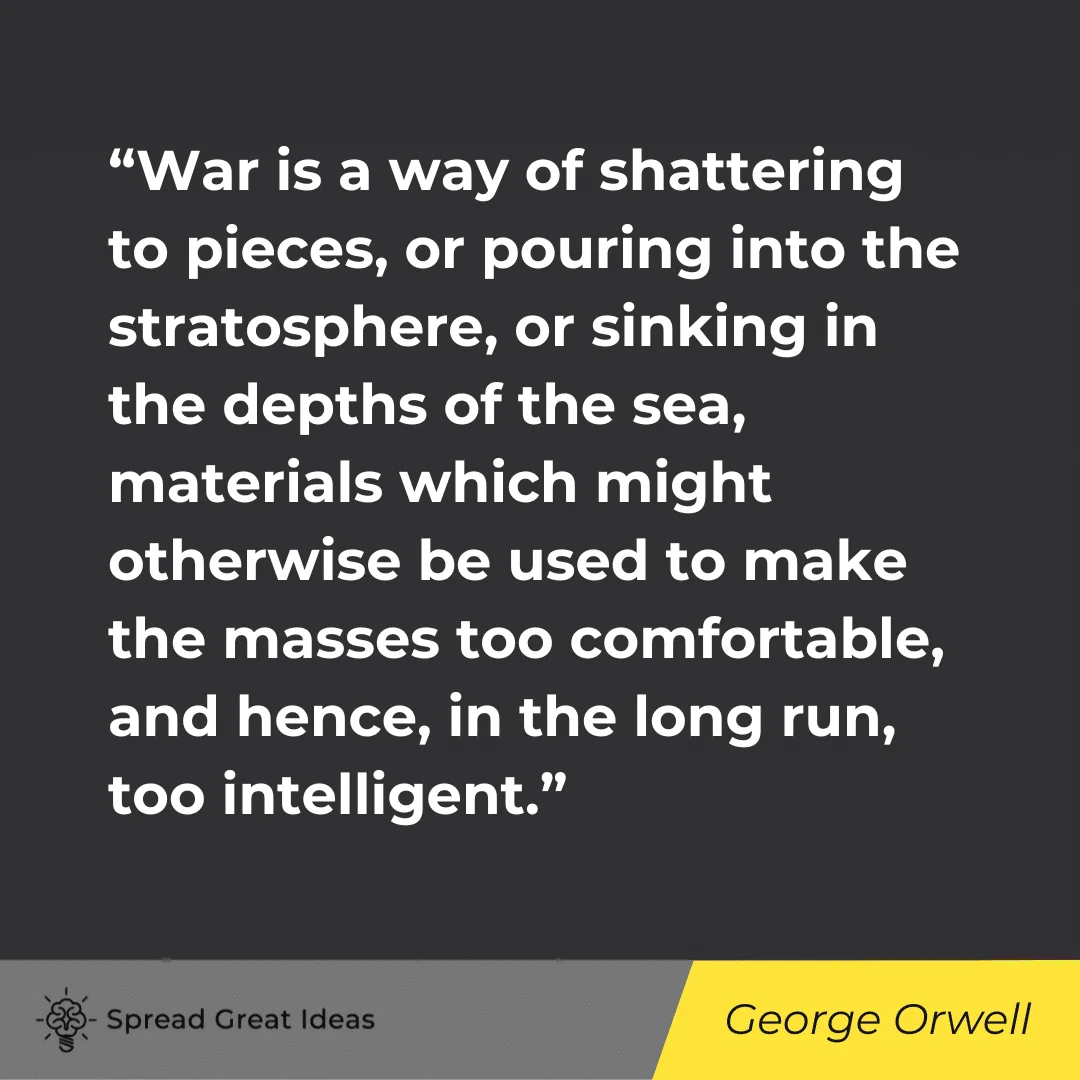
Dwight D. Eisenhower
“Only an alert and knowledgeable citizenry can compel the proper meshing of the huge industrial and military machinery of defense with our peaceful methods and goals so that security and liberty may prosper together.”
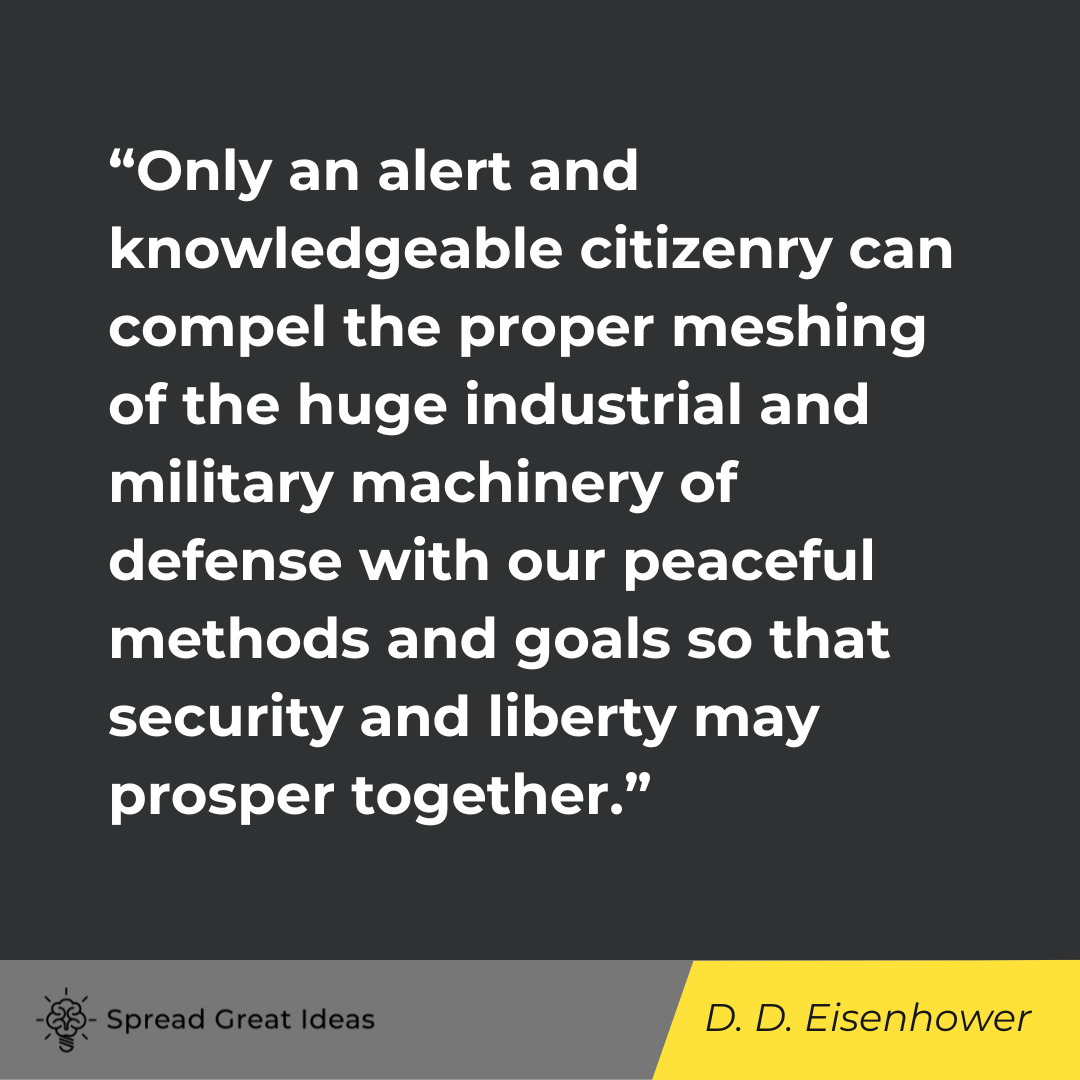
Smedley Butler
“War is a racket. It is the only one international in scope. It is the only one in which the profits are reckoned in dollars and the losses in lives.”
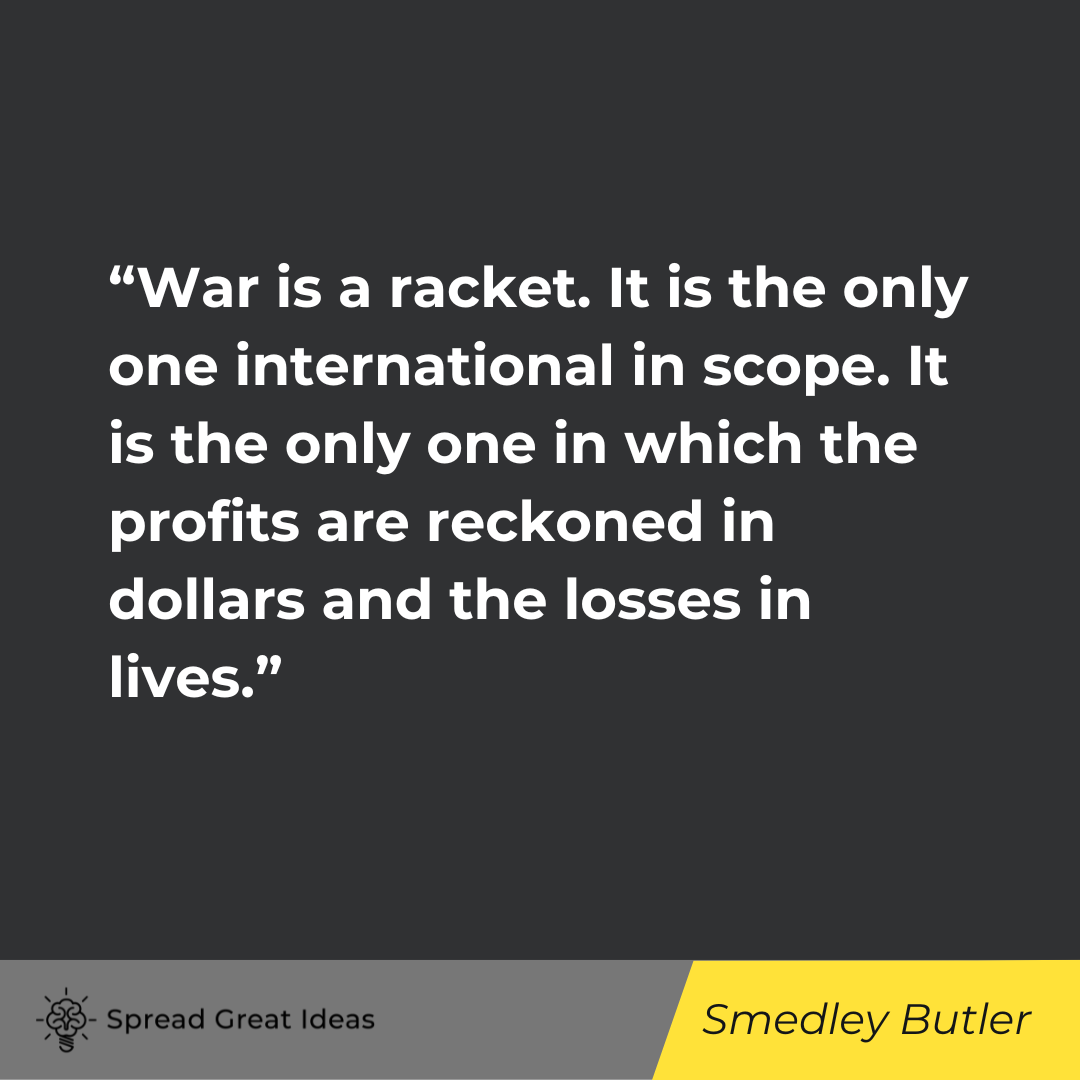
A.J.P. Taylor
“The great armies, accumulated to provide security and preserve the peace, carried the nations to war by their own weight.”
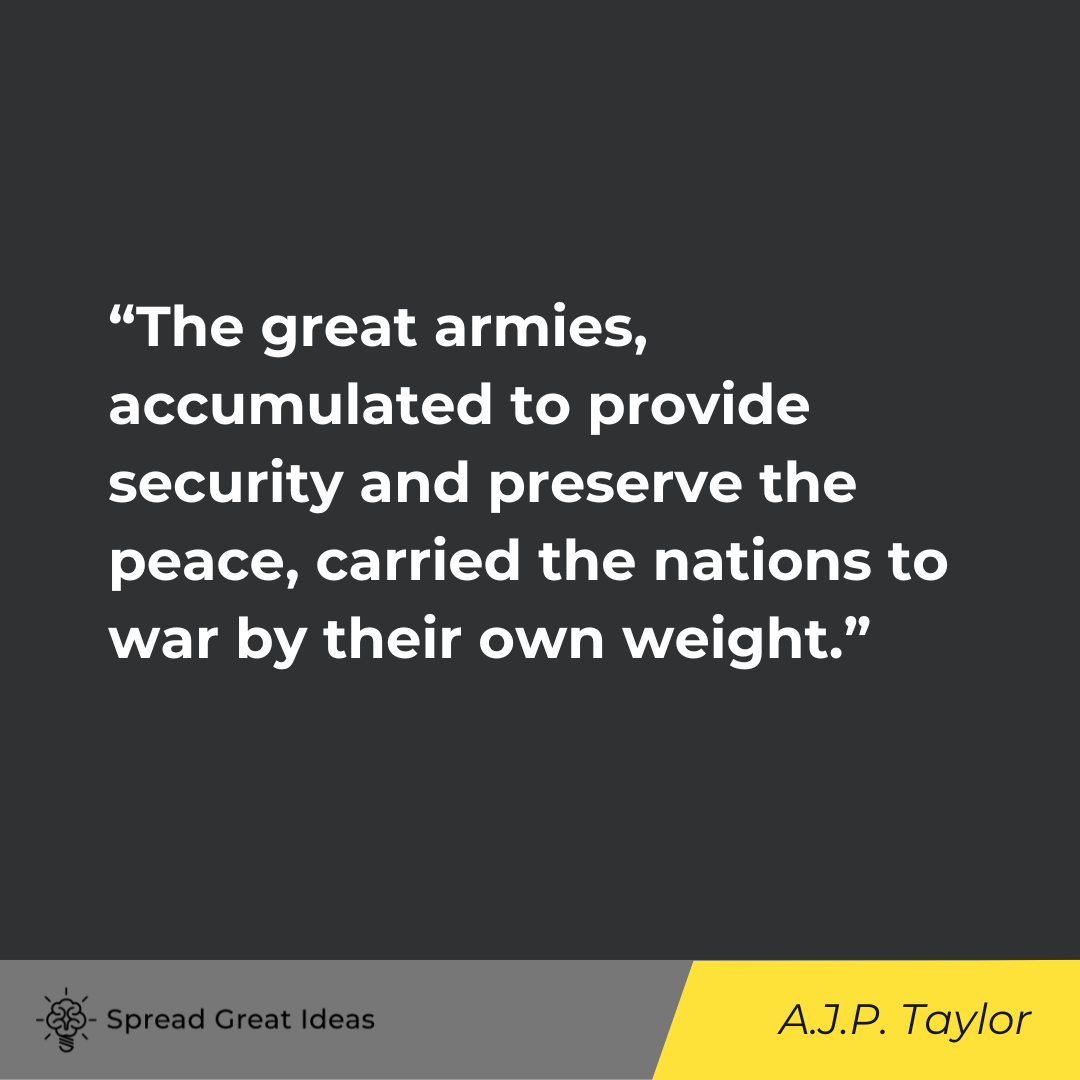
Niccoló Machiavelli
“Wars begin when you will, but they do not end when you please.”
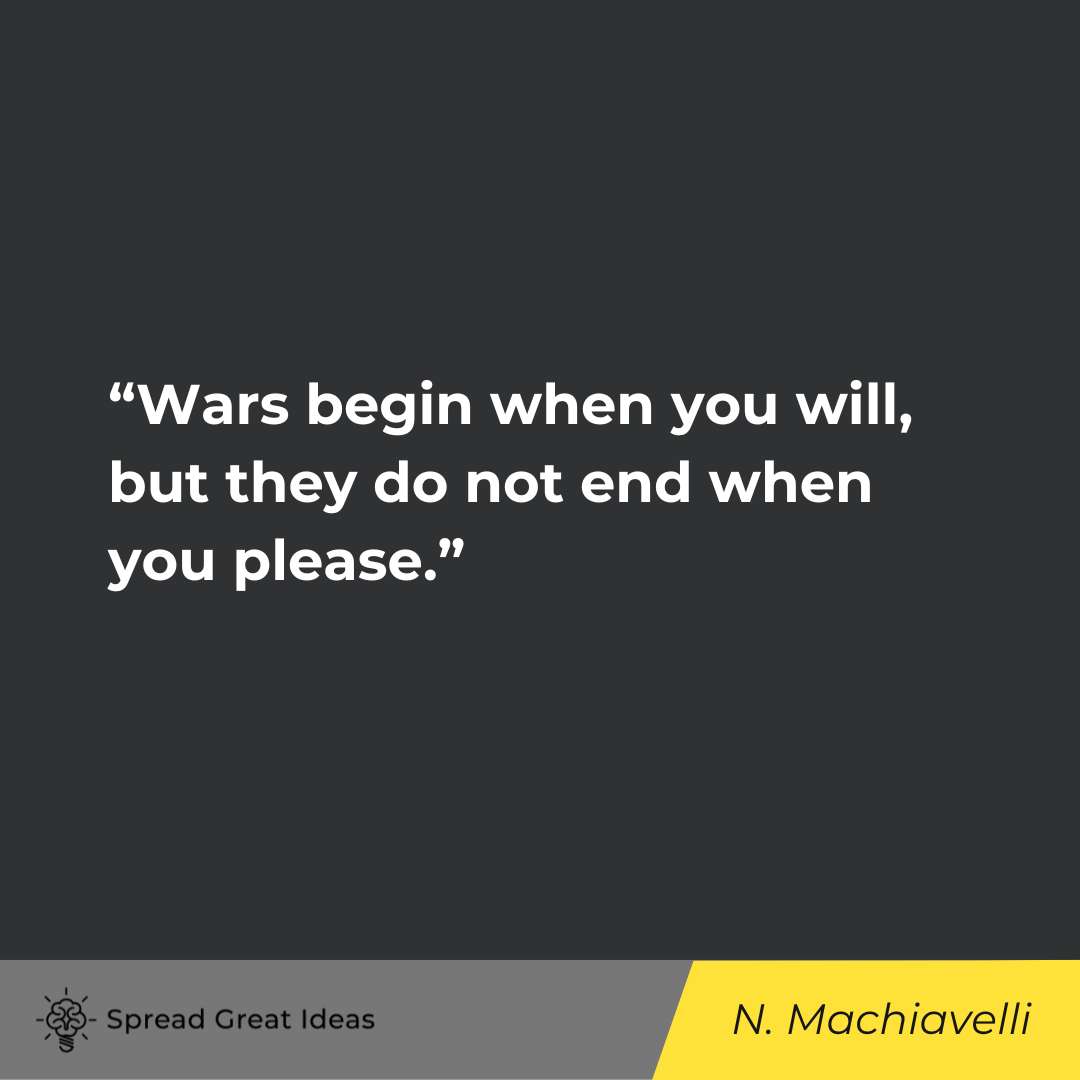
Robert Lynd
“The belief in the possibility of a short decisive war appears to be one of the most ancient and dangerous of human illusions.”
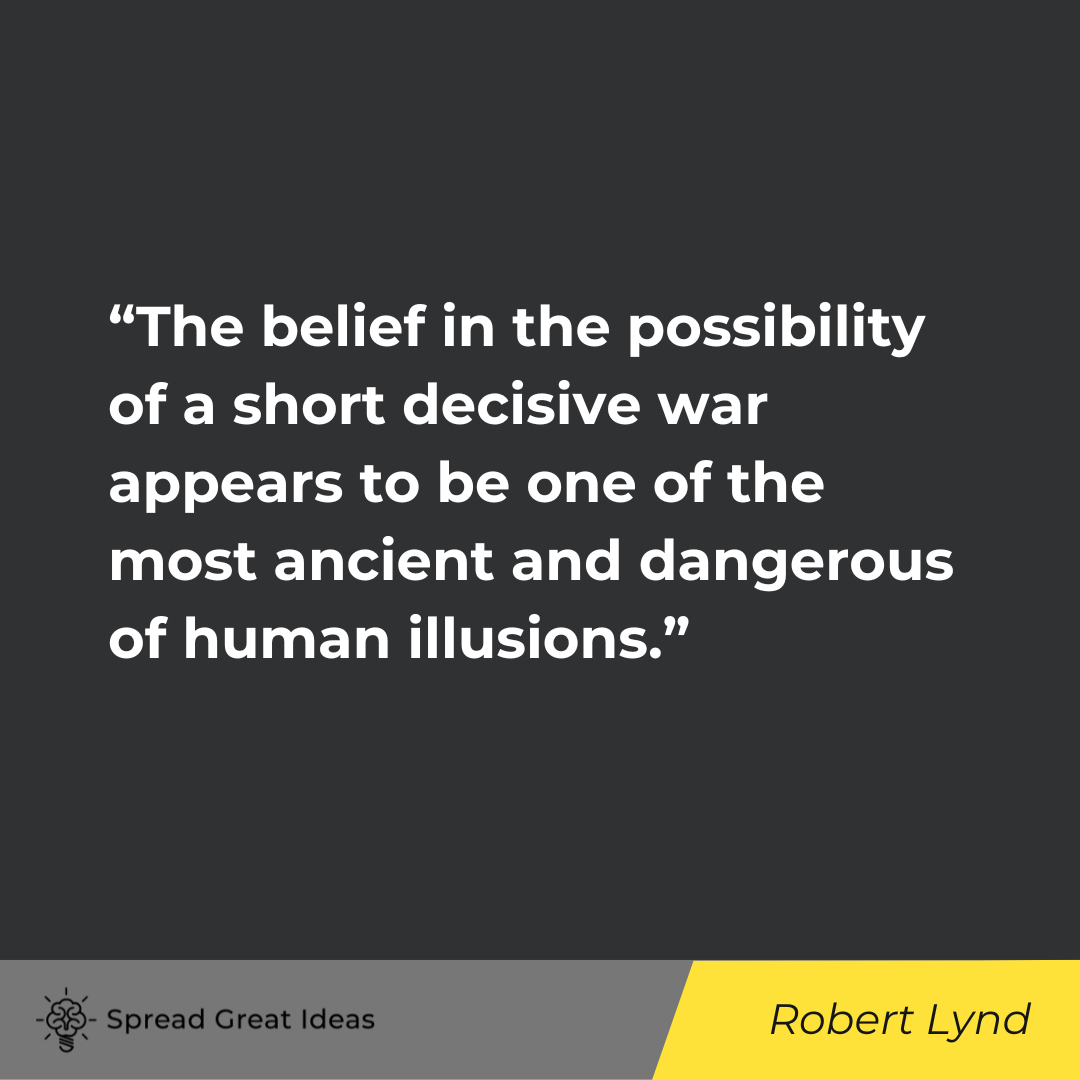
William Tecumseh Sherman
“It is only those who have neither fired a shot nor heard the shrieks and groans of the wounded who cry aloud for blood… War is hell.”
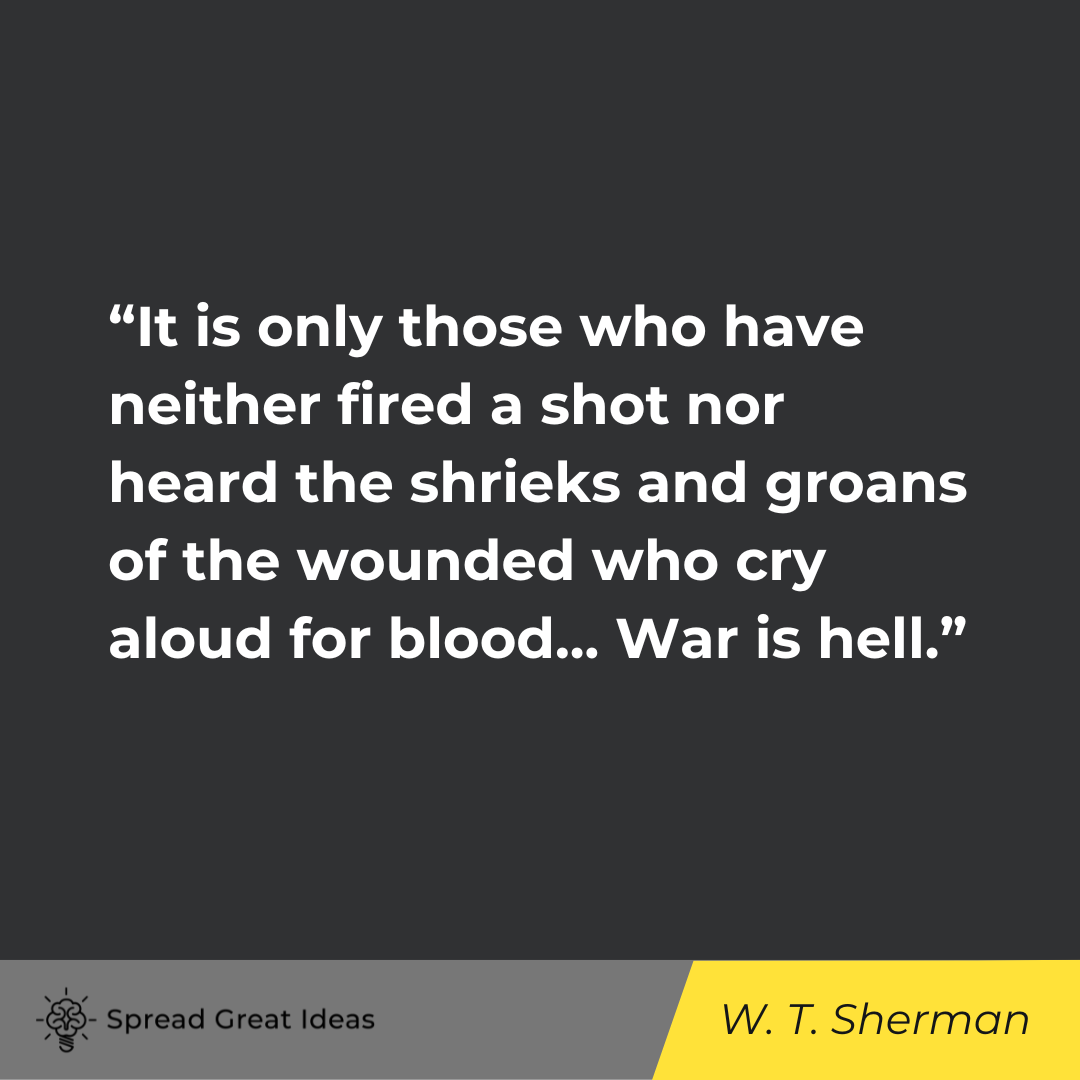
James Madison
“No nation could preserve its freedom in the midst of continual warfare.”
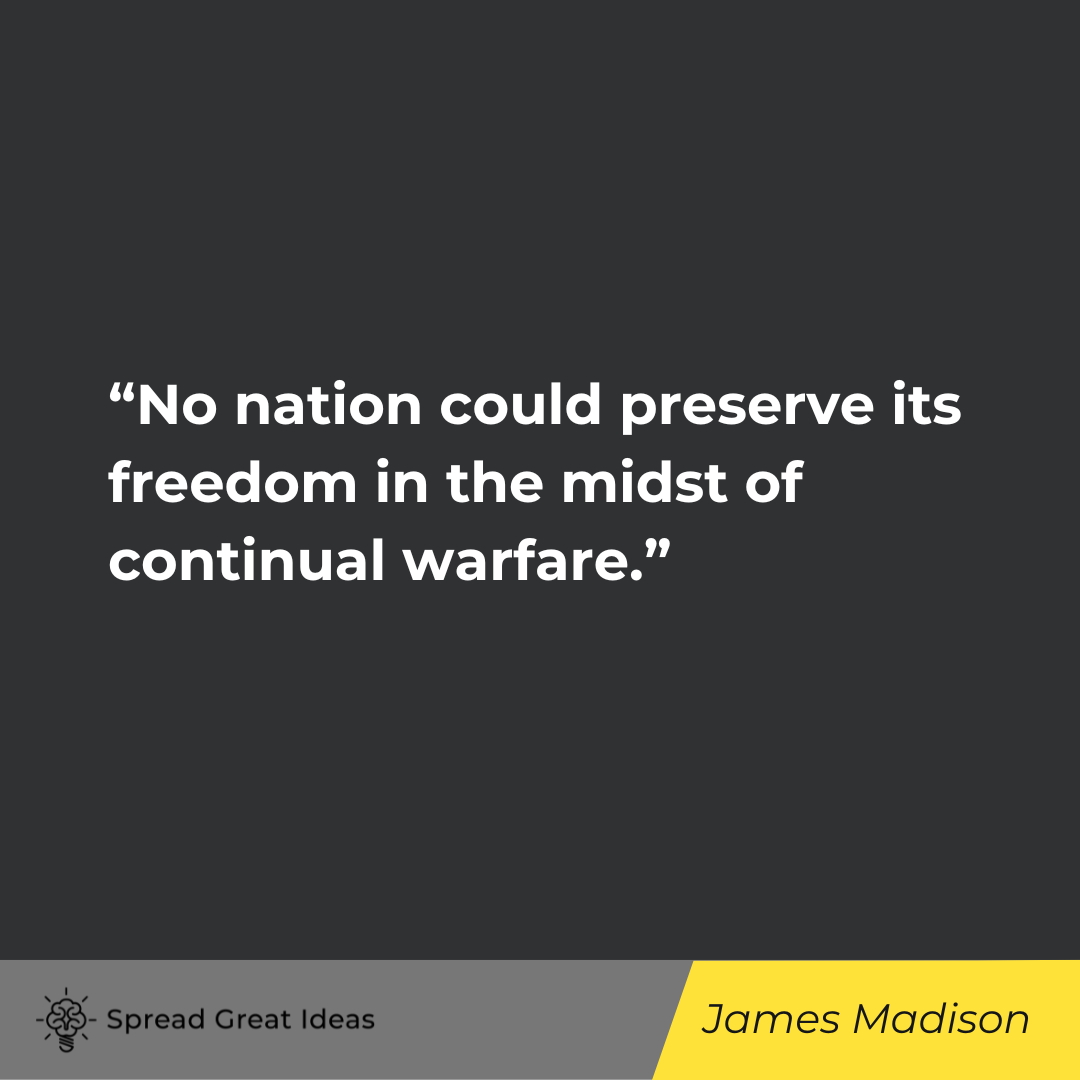
Robert M. La Follette
“Before the war is ended, the war party assumes the divine right to denounce and silence all opposition to war as unpatriotic and cowardly.”
– Senator Robert M. La Follette
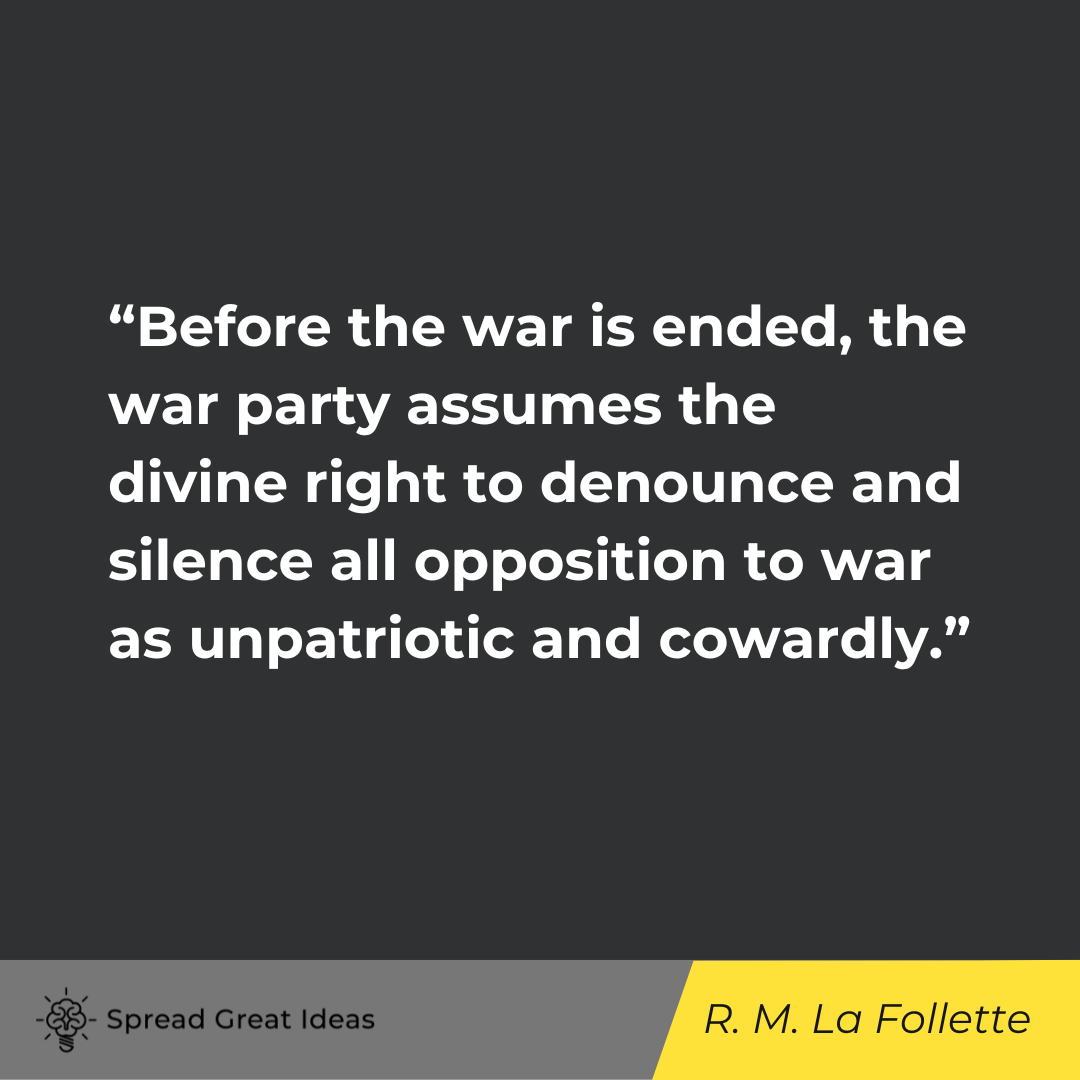
“In times of peace, the war party insists on making preparation for war. As soon as prepared for, it insists on making war.”
– Senator Robert M. LaFollette
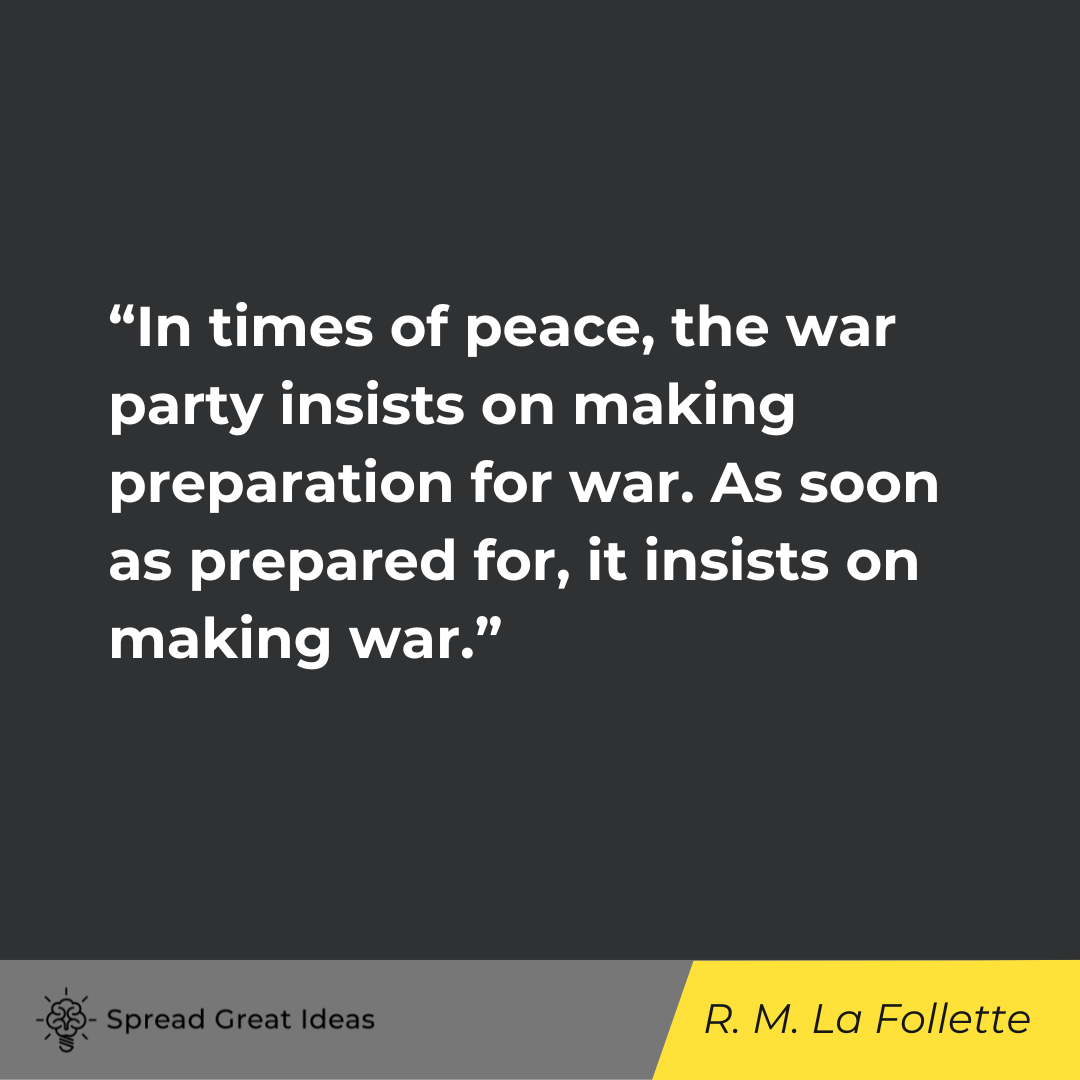
Abraham Lincoln
“Military glory – that attractive rainbow, that rises in showers of blood – that serpent’s eye, that charms to destroy…”
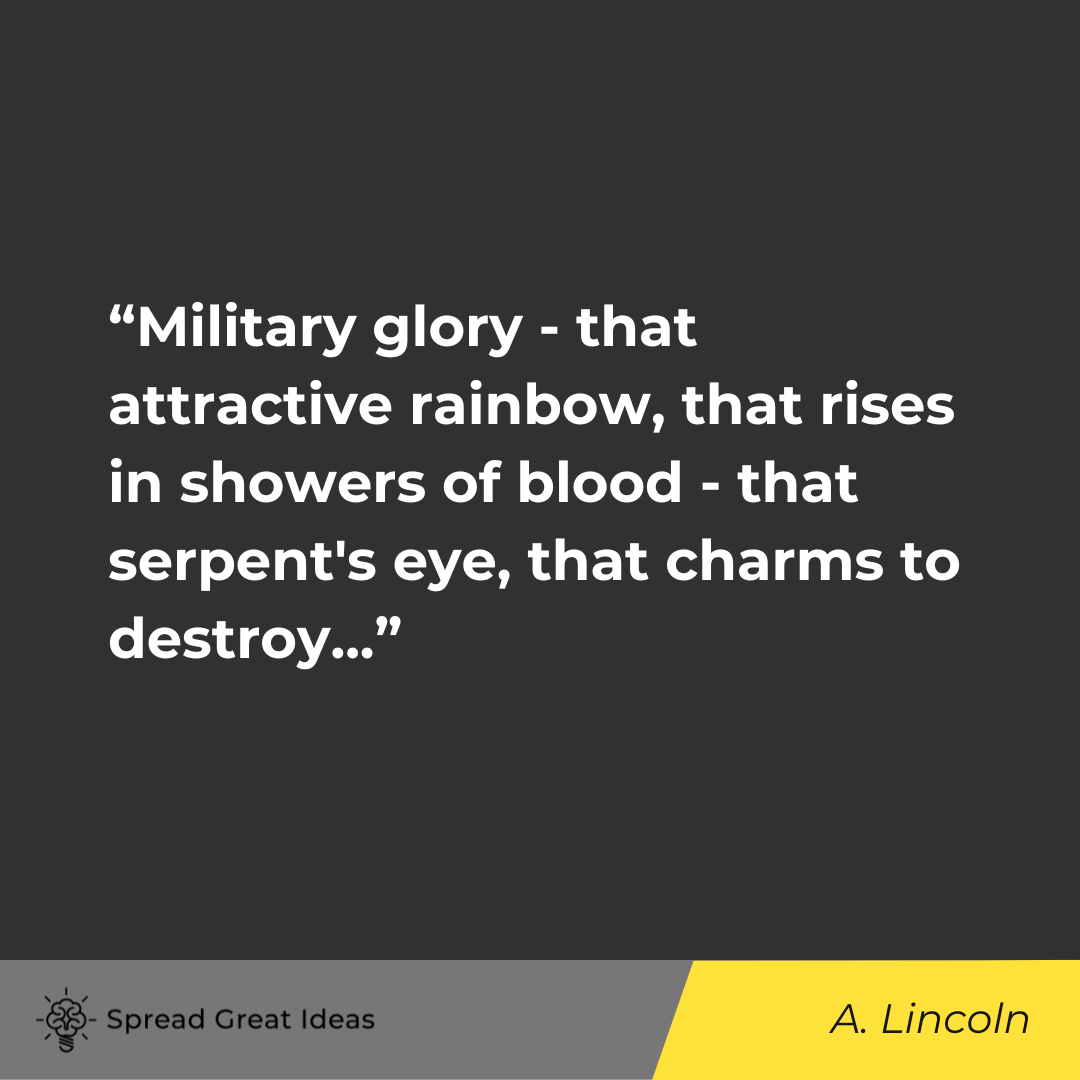
Herbert Hoover
“Old men declare war. But it is the youth that must fight and die.”
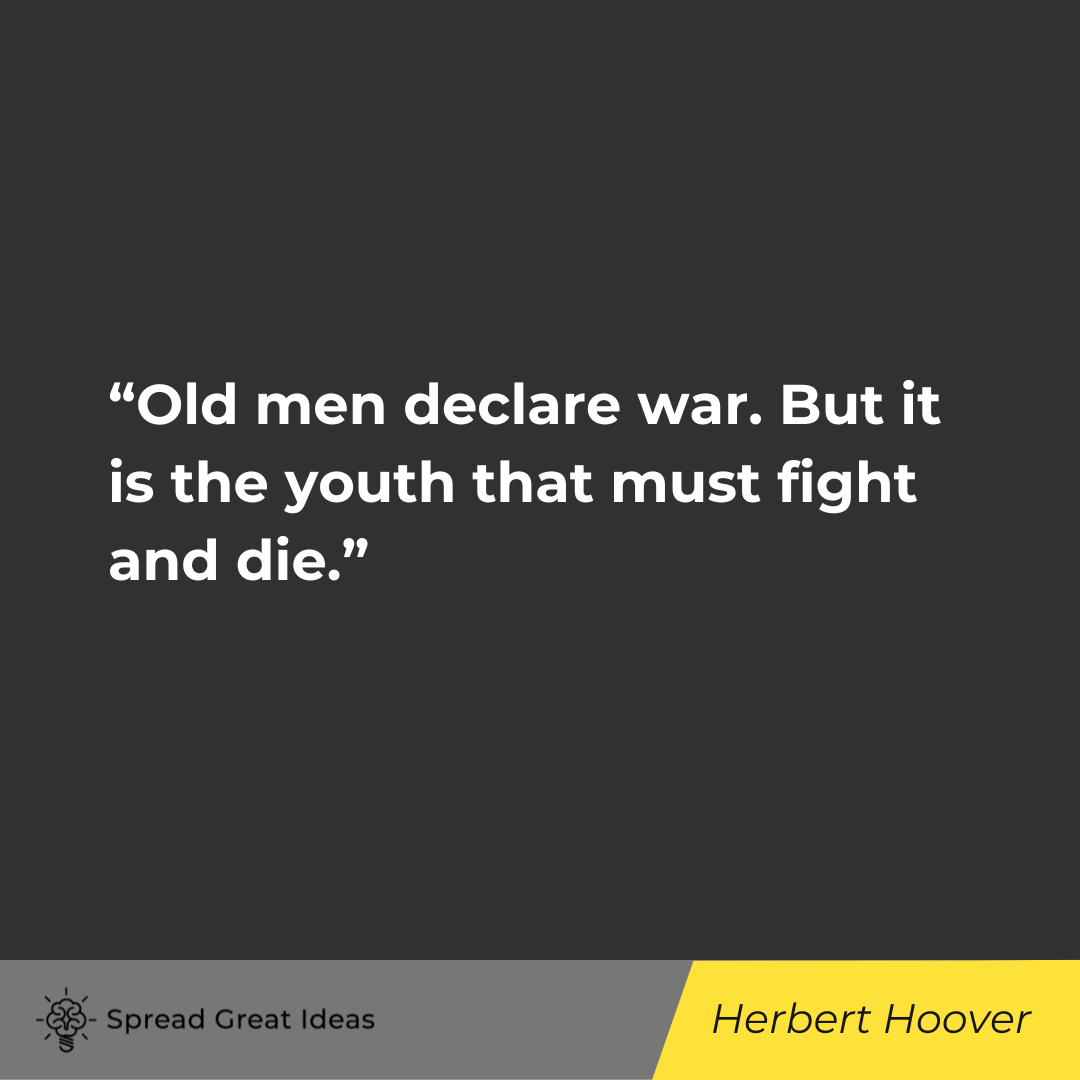
Alexander Solzhenitsyn
“A state of war only serves as an excuse for domestic tyranny.”
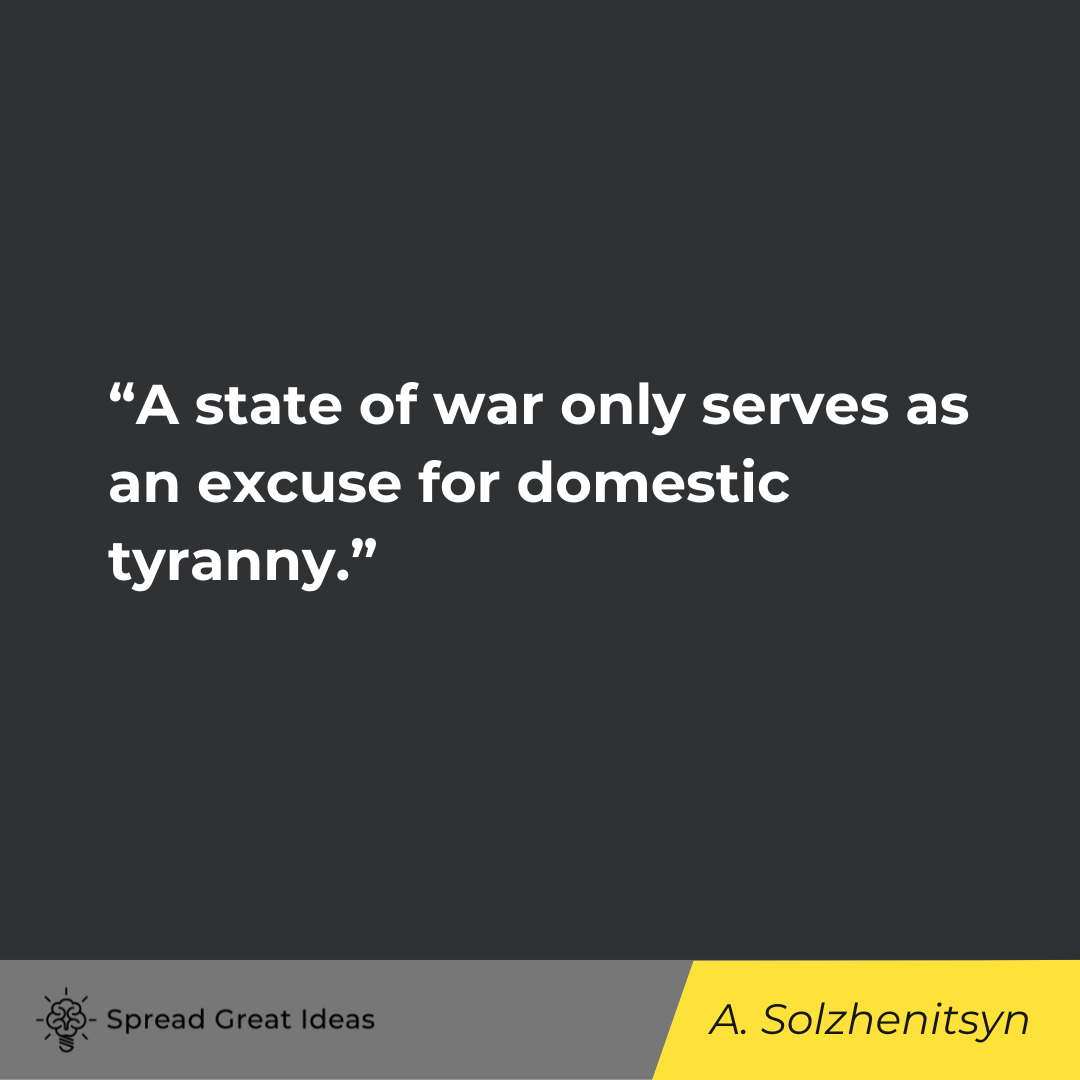
Ronald Reagan
“People do not make wars; governments do.”
